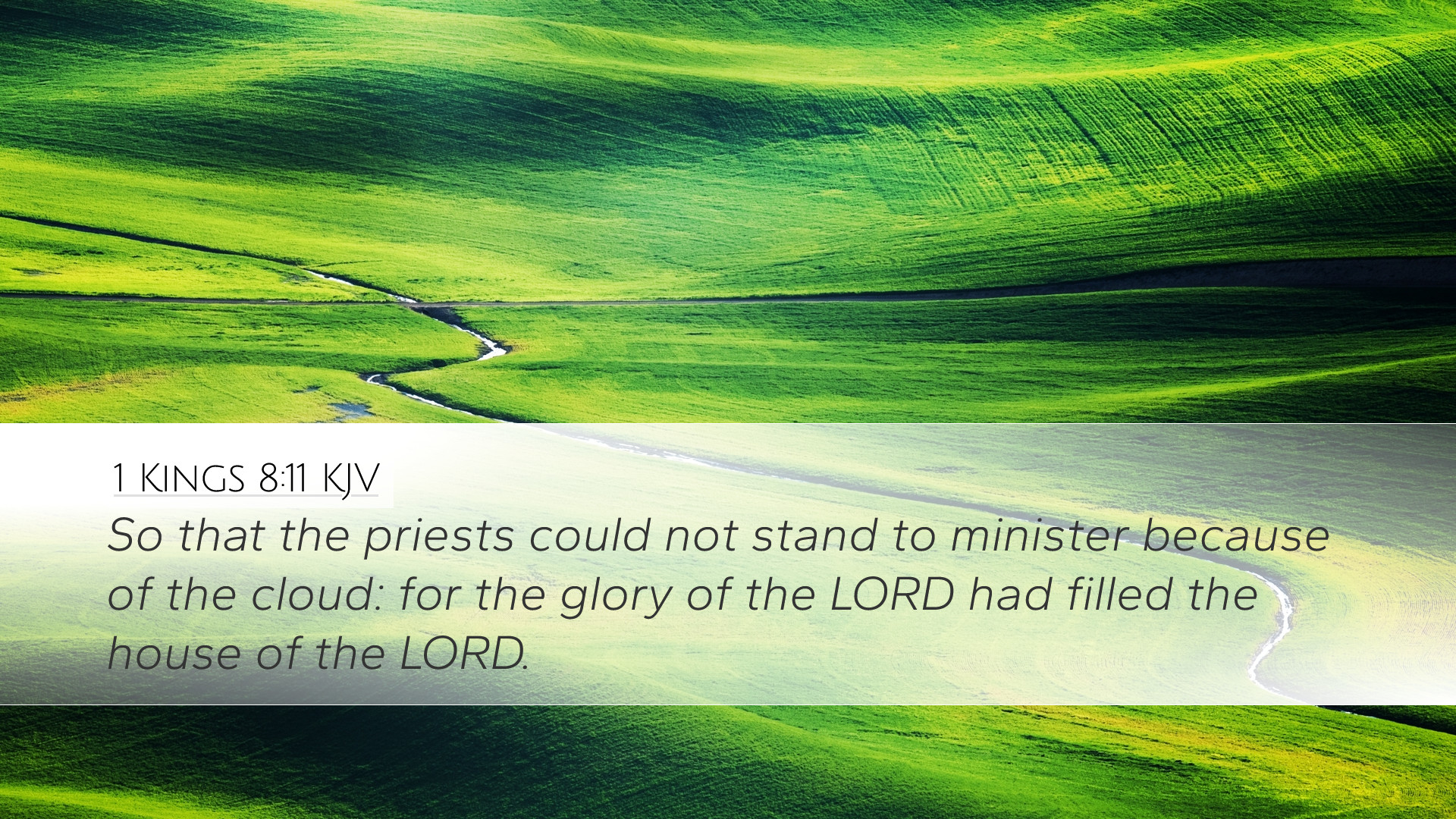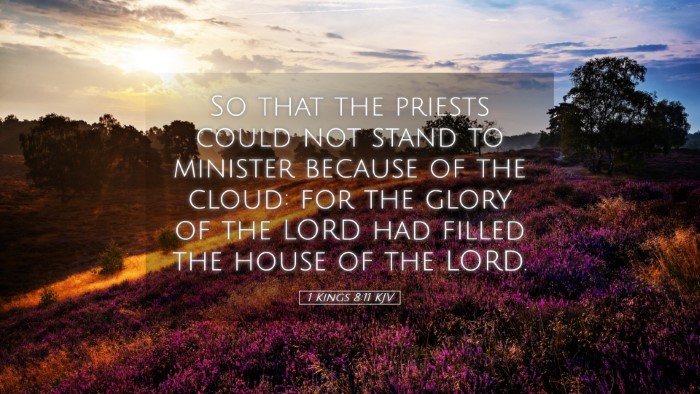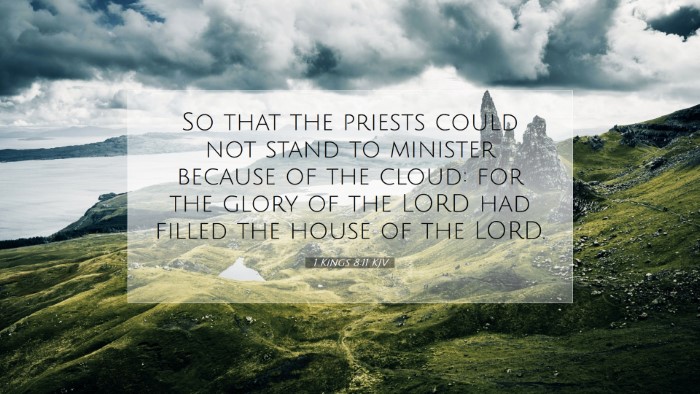Bible Commentary on 1 Kings 8:11
Verse Reference: 1 Kings 8:11 - "So that the priests could not stand to minister because of the cloud: for the glory of the Lord had filled the house of the Lord."
Context and Overview
The passage occurs during the dedication of Solomon's Temple, a pivotal moment in Israel's religious history. After years of preparation and labor, Solomon finally brings the Ark of the Covenant into the sanctuary he has built. This marks a significant moment, as it establishes the Temple as the center of worship for Israel.
The Significance of the Glory of the Lord
The phrase "the glory of the Lord had filled the house of the Lord" is crucial for understanding this passage. According to Matthew Henry, the divine glory is often represented by a visible manifestation of God's presence, typically associated with a cloud or light. This occurrence signifies God's approval of the temple as a place for His dwelling.
Matthew Henry's Insights
-
Divine Presence: Henry emphasizes that the cloud filled the temple, indicating that God does not dwell in temples made with hands alone, but it was His divine presence that sanctified the place.
-
Impact on Worship: The inability of the priests to minister due to the cloud signifies the overwhelming presence of God, suggesting that human efforts in worship may sometimes fall short in His glorious presence.
Albert Barnes' Commentary
-
The Shekinah Glory: Barnes draws attention to the Shekinah, which represents the dwelling or settling presence of God. The overwhelming glory indicates that the earthly temple, although beautiful, was only a shadow of the true sanctuary in heaven.
-
Role of the Priests: Barnes comments on the priests' inability to stand, explaining that this was a clear indication that human officials must yield to divine authority and cannot operate in the presence of God without acknowledging His supremacy.
Adam Clarke's Interpretation
-
Historical Context: Clarke places this event within its historical context, highlighting the significance of Solomon's reign and the established order of worship in Israel’s history.
-
Transformation of Worship: Adam Clarke mentions that the temple service was fundamentally transformed. The visible glory of God implies a transition in worship from the tabernacle periods to a settled, more established form of worship in the temple.
Theological Implications
The overwhelming manifestation of God's glory in the temple speaks volumes about how God interacts with humanity. From the perspectives of these commentators, we see several key implications:
- God's Sovereignty: The inability of the priests to conduct their duties serves as a reminder of God's ultimate authority over worship and service.
- Holiness and Worship: The encounter signifies the reverence and holiness required when approaching God, urging believers to recognize the sacredness of worship.
- God’s Continued Presence: This verse anticipates the New Testament understanding of God’s presence, fulfilled in Christ and expressed through the Holy Spirit within the believers, suggesting that God connects His people not through temples or clouds, but through living faith.
Application for Pastors and Theologians
For pastors and theologians, 1 Kings 8:11 serves as a reminder of the importance of invoking God's presence in worship, understanding the attributes of God that underlie the formalities of ministry, and recognizing that true worship transcends physical locations.
As they lead congregations, pastors must strive to facilitate encounters with God's glory, acknowledging that routine rituals are mere shadows if not filled with the acknowledgment of God's majestic presence. Building a culture of reverence and worship that acknowledges God's sovereignty encourages congregants to seek personal transformation in their relationship with Him.
Conclusion
The study of 1 Kings 8:11 brings forth profound insights from historical, theological, and applicative perspectives. As we reflect on the temporary nature of temples and the continual necessity of God's dwelling among His people, may this encourage believers to engage in authentic worship and to seek the overwhelming glory of the Lord in their lives today.


